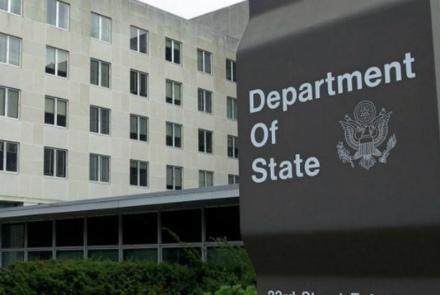The Afghan Ministry of Defense on Thursday welcomed the United States decision to list Pakistan among the nations and regions providing "safe havens" to terrorists.
The Defense Ministry spokesman Mohammad Radmanish said Afghanistan wants terrorists’ safe havens eliminated in Pakistan.
“Pakistan must be pressurized in order to fight against terrorism and oust them (terrorists) from that country,” Radmanish stated.
On Wednesday, the United States Department of State listed Pakistan among the nations and regions providing "safe havens" to terrorists, saying terror groups like Lashkar-e-Taiba and Jaish-e-Mohammed continue to operate, train, organise and fundraise inside the country in 2016.
In its annual 'Country Report on Terrorism', as mandated by the Congress, the U.S. State Department said that Pakistani military and security forces undertook operations against groups that conducted attacks within Pakistan such as Tehrik-e-Taliban Pakistan.
"Pakistan did not take substantial action against the Afghan Taliban or Haqqani, or substantially limit their ability to threaten U.S. interests in Afghanistan, although Pakistan supported efforts to bring both groups into an Afghan-led peace process," the State Department said.
"Pakistan did not take sufficient action against other externally focused groups, such as Lashkar-e-Taiba (LeT) and Jaish-e-Mohammed (JeM) in 2016, which continued to operate, train, organize, and fundraise in Pakistan," the report said.
In a separate chapter, the State Department listed Pakistan as one of the safe havens of terrorism.
The State Department said that numerous terrorist groups, including the Haqqani Network (HQN), the LeT and JeM continued to operate from Pakistani soil in 2016.
"Although LeT is banned in Pakistan, LeT's wings Jamaat-ud-Dawa (JuD) and Falah-i-Insaniat Foundation (FiF) were able to openly engage in fundraising, including in the capital," it said.
"LeT's chief Hafiz Saeed (a UN-designated terrorist) continued to address large rallies, although in February 2017, Pakistan proscribed him under relevant provisions of Schedule Four of the Anti-Terrorism Act, thus severely restricting his freedom of movement," it noted.
The 2015 ban on media coverage of Saeed, JuD, and FiF continued and was generally followed by broadcast and print media, it said.
According to the State Department, the Pakistani government did not publicly reverse its December 2015 declaration that neither JuD nor FiF is banned in Pakistan, despite their listing under UN sanctions regimes, although in January 2017, Pakistan placed both organizations "under observation" pursuant to Schedule Two of the Anti-Terrorism Act.
Meanwhile, a number of Afghan analysts said they welcome the Afghan government’s efforts to convince the international community to put more pressure on Pakistan.
“Afghanistan should conduct its lobbying activities smartly in this situation in order to sideline Pakistan,” said Nasrullah Stanekzai, university lecturer.


